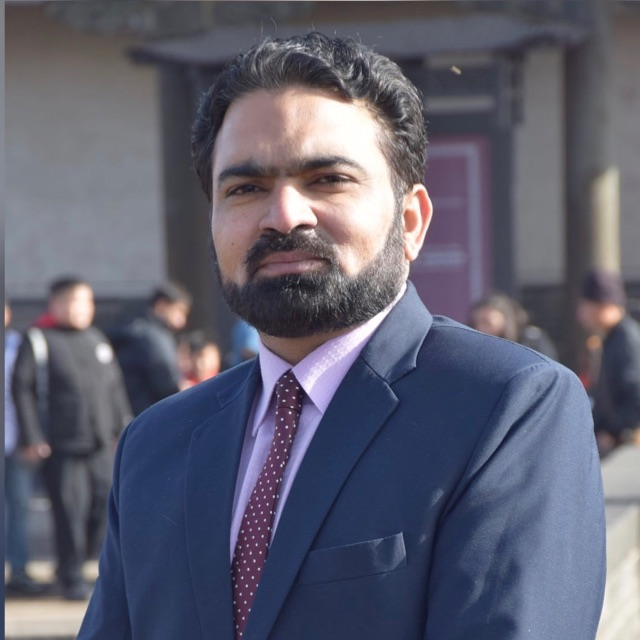BY Abdul Rashid Shakir
Public welfare is bedrock of a welfare state that guarantees a productive education system, a responsive healthcare infrastructure, a cutting-edge communication network, and a rewarding employment apparatus. It stems from development-oriented policy formulation, data-driven project planning, and objective-oriented implementation of major KPIs (Key Performing Indicators), backed by sound legislation and robust enforcement. It is a logical corollary of altruistic vision of ruling elite, stability of political order, dependable law & order and continuity of policies.
Pakistan, unfortunately, has a chequered history, dotted with cyclical patterns of boom and bust in almost every field, which rendered our development journey non-starter. That is why even after the lapse of almost 08 decades now, Pakistan still has around 61% literacy rate, and 38% out of school children (OOSC), because we are able to spend just 0.8% of our $411 billion GDP on education (Pakistan Economic Survey 2024-25). However, it is satisfying to note that the current Government is trying to fix this flaw. Its projects like ‘Uraan Pakistan’, and whole-of-the-government platforms like SIFC (Strategic Investment Facilitation Council) are remarkable interventions in this regard, as they not only provide 5E vision (E-Pakistan & Empowerment, Environment, Energy, Equity and Exports) for economic transformation but also ensure enabling environment for investment and trade by weeding out menace of terrorism from the country.
Punjab under its committed Chief Minister Maryam Nawaz Sharif is taking an extra mile not only in education, employment and engagement (3Es) but also in infrastructure development, environmental protection and law & order improvement. Budget 2025-26 has allocated record funds for education, health and development. Government has not only earmarked historic development funds of Rs 1240 billion, but has also prioritized education, health and public welfare. 27% of the total budget outlay of Rs 5335 billion has been reserved for education and health, while 73% of it has been kept for public investment projects (finance.punjab.gov.pk).
Education and capacity building is another priority item. Government has committed hefty funds to provide missing facilities in government schools, Rs 40 billion has been allocated in the budget for the purpose. Rs 9.4 billion are allocated for free books while Rs 7 billion have been reserved for School Meal Program. Talented students are being provided meritorious scholarships and laptops to help them in studies, Rs 30 billion have been kept in the budget for the purpose. Additionally, Rs 18 billion have been reserved for the public sector Universities in Punjab.
Chief Minister is focused on reforms in the health sector. 32 Field Hospitals, 911 Clinics-on-Wheels, free medicines in government hospitals, and free home delivery of medicines of patients suffering from Cancer, Cardiovascular Diseases, Hepatitis, TB and Type-I Diabetes are major initiatives of the government in this regard. Government is striving its best to lay a network of healthcare facilities in the province. Nawaz Sharif Cancer Hospital Lahore, and Institute of Cardiology Sargodha will be completed this year, while Nawaz Sharif Medical District Lahore will be the first center in Pakistan where all deadly diseases will be treated. Allocations of Rs 14.5 billion for Nawaz Sharif Cancer Hospital Lahore, Rs 4.5 billion for Institute of Cardiology Sargodha, Rs 61 billion for Medical District Lahore, Rs 9.4 billion for Jinnah Institute of Cardiology Lahore, Rs 18.3 billion for Health Centers and Rs 9.7 billion for Health Clinics across the province, Rs 6 billion for Children’s Hospital Rawalpindi, Rs 3.2 billion for Children’s Heart Surgery Program, Rs 3.6 billion for Transplant Program, Rs 8.6 billion for Dialysis Program, Rs 3.5 billion for Clinics-on-Wheels, Rs 79.5 billion for free medicines and Rs 25 billion for Health Insurance Programme in 2025-26 budget speak volume of the efforts of Punjab government to upgrade and make its healthcare system more efficient and responsive to public needs (finance.punjab.gov.pk).
Madam Chief Minister has also given top priority to the development of roads and transport infrastructure in the province by allocating Rs120 billion for roads, and Rs 141.5 billion for the provision of modern urban transport facilities in the form of metro trains, metro buses, speedo buses, electric buses and tram. Rs 46 billion have been earmarked for e-bus, Rs 3.5 billion for e-taxi, and Rs 28 billion for Mass Transit Projects of Faisalabad, Lahore and Gujranwala. Chief Minister has launched a historic project for the construction, expansion and repair of 18,700 KM long 1471 roads in Punjab. The construction of 12,000 KM long 1214 roads has been completed, while total 18,700 KM long roads will be completed by December. Additionally, Rs 50 billion have been allocated in the budget for CM Punjab Local Road Program.
1193 projects for the construction and repair of buildings have been completed in the province, including Phase-I of construction and repair of health centers, Simli General Hospital Murree, Sahiwal Teaching Hospital and Agriculture Malls in four cities. Programs like ‘Apni Chhat, Apna Ghar’, Nawaz Sharif IT City, Ramadan Relief Package, Minority Card, Ration Card, Sahulat Bazaar, Kisan Card, Green Tractor, Agricultural Tube Wells Solarization, Green Pakistan, ‘Suthra’ (Clean) Punjab, Safe Cities, Lahore Development Program, Livestock Assets Program and Film Finance Fund, besides other projects in solar energy, agriculture, environment, forests, wildlife, fisheries, business, governance, IT, housing and public health were introduced in previous year, while more such people-friendly projects like construction and development projects in 144 cities under Punjab Development Program will be completed in collaboration with the World Bank and Asian Development Bank, besides upgradation of 200 villages under CM Model Village Program.
Punjab has enacted elaborate legislations required to ensure public welfare, besides protecting their lives and properties. It has rolled out several specialized forces like Environmental Protection Force, PERA (Punjab Enforcement & Regulatory Authority) Force, Counter-Narcotics Force (CNF), and Riot Management Force to ensure effective implementation of various rules and regulations to guarantee public welfare.
To wrap up, it can aptly be concluded that all the afore-mentioned interventions of the Punjab Government would prove to be game-changer for public welfare and good governance in the province.

















